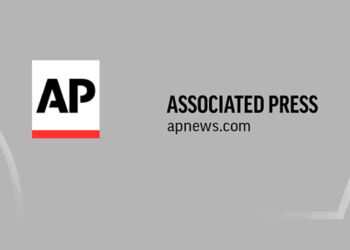The National Basketball Association (NBA) returned to China after a six-year hiatus this weekend, staging two preseason games between the Phoenix Suns and the Brooklyn Nets in Macau—the semi-autonomous territory in the country’s south that is best known for its casinos. It was in one of those casinos—the Venetian, owned by U.S. billionaire Miriam Adelson—that the Suns and Nets played in front of a of thousands of Chinese fans.
That fandom was built over much of the past two decades, a love affair that began in 2002 when the Houston Rockets drafted 7-foot-6-inch Chinese player Yao Ming. Yao went on to have a stellar career (eight-time All-Star, Hall of Famer) during which hundreds of millions of people in China became NBA fans.
The league cashed in aggressively, hosting more than two dozen preseason games in China between 2004 and 2019—not to mention the frequent visits and basketball camps by superstars such as Kobe Bryant and LeBron James. A 2022 analysis by ESPN valued the NBA’s China business at around $5 billion.
It was days before James’s last preseason tour of China with the Los Angeles Lakers in 2019 that it all fell apart. Daryl Morey, the general manager of the Rockets at the time, tweeted a message of solidarity with pro-democracy protesters in Hong Kong, another semi-autonomous territory—just a short ferry ride away from Macau—that China has increasingly tightened its grip on.
Morey’s tweet, which read “Fight For Freedom. Stand with Hong Kong,” was quickly deleted, but the damage was done. Chinese broadcasters stopped showing NBA games, local sponsorship deals collapsed, and James’s preseason games in China the following week (also against the Nets) would end up being the NBA’s last—until now.
The NBA-China dustup coincided with a particularly fraught period in China’s relationship with the United States. U.S. President Donald Trump’s aggressive trade war and tech curbs against China were the cornerstone of his first term in office, which ended a little more than a year after the NBA controversy. His hawkish stance against Beijing was largely continued by former President Joe Biden from 2021 to 2025.
Since Trump’s return to the White House in January this year, his China policy has been more mercurial, marked by sudden escalations that have been mostly walked back. In the meantime, China has weaponized its leverage, and Trump appears eager to cut a deal.
China has also shown a willingness to leverage its soft power tools, such as its status as the world’s purveyor of popular and cuddly pandas and its ownership of the hugely popular social media app TikTok, to put U.S. leaders in awkward positions.
But soft power keeps reasserting itself. The pandas, which China withdrew from Washington’s Smithsonian National Zoo in 2023 were replaced with new ones a year later. And TikTok has been at least temporarily saved from going dark in the United States. Chinese state broadcaster CCTV, meantime, quietly resumed showing NBA games a little more than three years ago—even as Washington and Beijing escalated their diplomatic, military, and technological great power competition.
The choice of Macau as a venue for the weekend’s preseason games (only its second time hosting them since 2004) stems in part from capitalistic realism. Casino executive Patrick Dumont, whose billionaire mother-in-law—the aforementioned Adelson—also happens to be one of Trump’s biggest donors, reportedly lobbied to stage the games there.
But there’s also a degree of symbolism involved. Macau represents a similar China-but-not-quite-China status as Hong Kong, which precipitated the whole NBA firestorm six years ago. Both territories are ruled under a principle called “one country, two systems,” which allows them a degree of autonomy despite Chinese control.
Macau’s hosting of the preseason games—part of a five-year deal with Adelson’s company Las Vegas Sands—also allows the NBA to dip its toe back into the Chinese market, where at its peak, the league was watched by some 500 million people.
It remains to be seen whether that opens the door to bring games back to mainland Chinese metropolises such as Beijing, Shanghai, and Shenzhen, as was common in the preceding decades. But for now, at least basketball is back.
The post The NBA’s Long Road Back to China appeared first on Foreign Policy.




